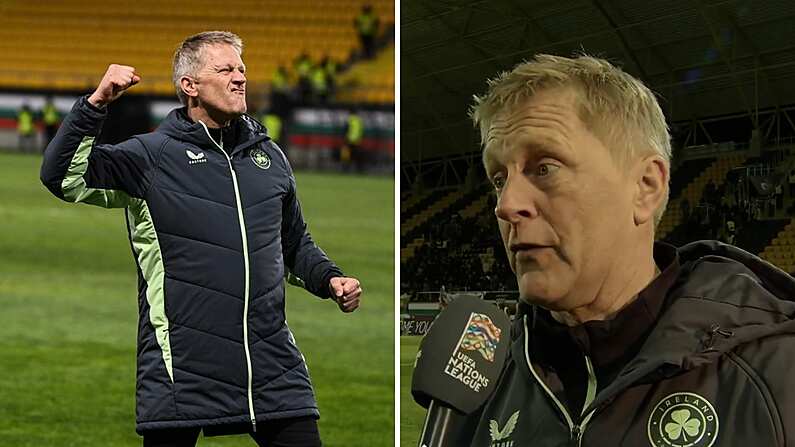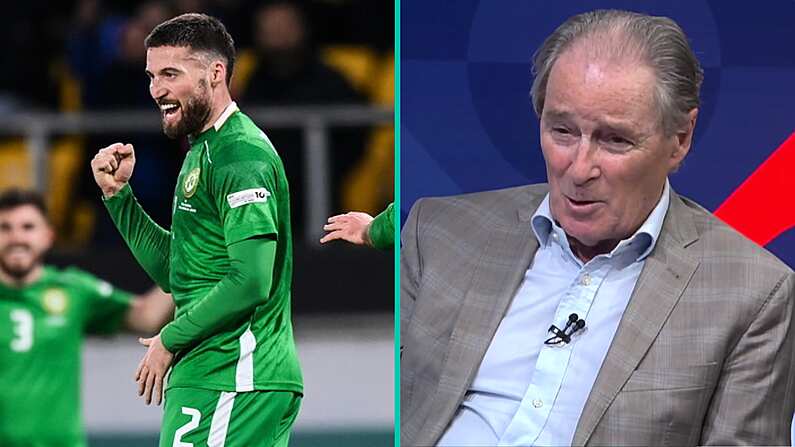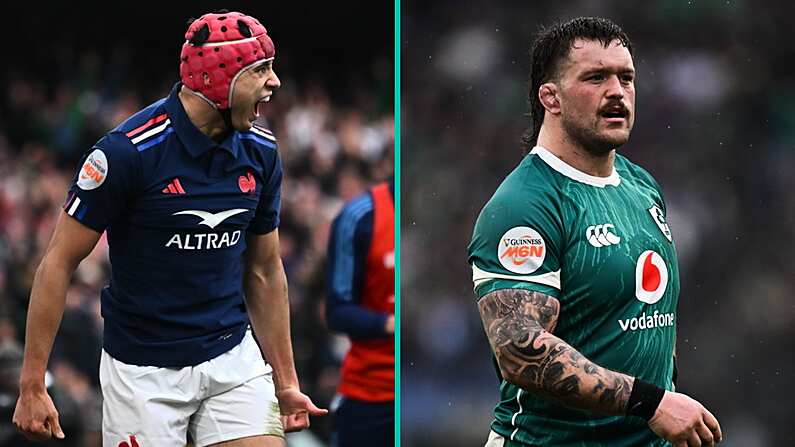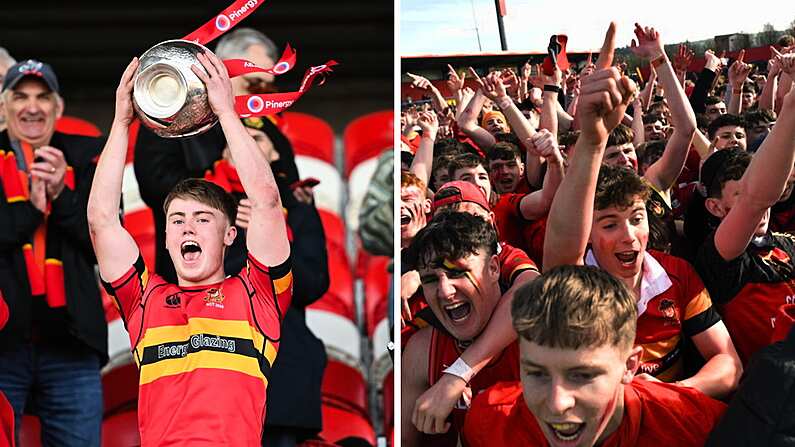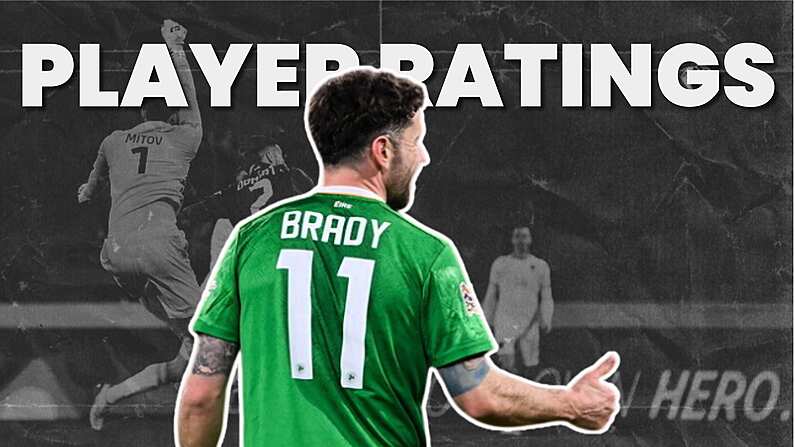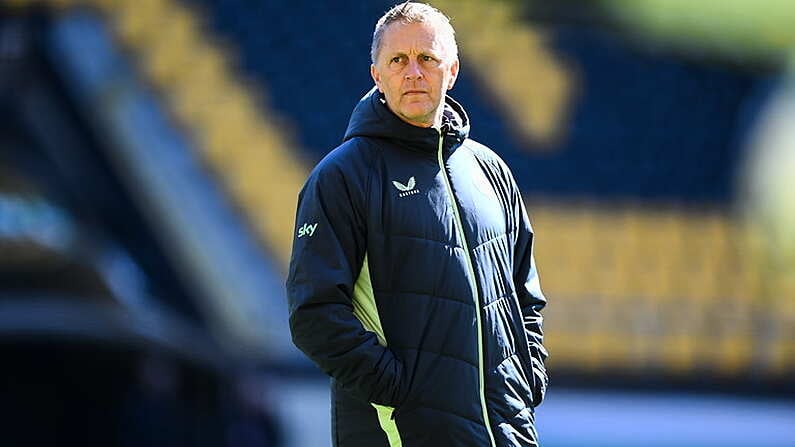In honour of the 30 year rule which sees the belated release of state papers after three decades - today we learned that Maggie Thatcher regarded the 1921 Treaty as a mistake and longed to move the entire northern nationalist population south of the border - we will looked back at the state of Irish sport in 1986. None of these accounts are, or were, official state secrets obviously, but some might news to some of our younger folk.
Eamon Dunphy still thought Jack Charlton was the business
It would be a few years before Eamon turned decisively against Big Jack. But by the end of Charlton's first year, Dunphy was ridiculing those native critics like Con Houlihan who alleged that Jackie would turn Ireland into the international equivalent of Watford and Wimbledon.
Before the campaign even began, Dunphy wrote that Charlton will 'try and achieve a balance between skill and aggression' and damned all the talk that Charlton would "have Ireland kicking long hopeful balls in a crude attempt to emulate Wimbledon, Watford and Sheffield Wednesday, the New Barbarians of the English First Division."
Dunphy regarded Jack's grim pragmatism and blunt insensitivity as an antidote to the years of amiable, soft-headed decentskinsmanship that prevailed before his arrival.
Jack's first game was a friendly against Wales, against whom we then had a 100% record of losing. He knew so little about the players, he let Mick Byrne pick the team.
Ray Houghton and John Aldridge had already been recruited and made their debuts. Wales manager Mike England was surprisingly undiplomatic.
The rest of the football world thinks this business is a huge joke. If you've been to Dublin for a fortnight's holiday, you get called up.
Irish youngsters must feel very upset about it.
Apathy won the day. Ireland lost 1-0 in front of 17,000 spectators. "It's a pity Brian Clough doesn't like fishing," wrote Con Houlihan.
By the end of 1986, Ireland had won their first tournament in senior international football, the Icelandic triangular competition between Ireland, Iceland and Czechoslovakia. They had also made a respectable start to Euro 88 qualification. At least, they remained unbeaten following the opening two games. A Liam Brady snatched a late draw away to Belgium, the fourth placers at Mexico '86. This was followed by a less satisfying scoreless draw at home with the then formidable Scotland.
However, George Hamilton has told Balls.ie that the main focus was building towards Italia 90 qualification. This was the conversation at the time. Qualification for the eight-team Euro 88 competition was regarded as a tall order.
YES!! Another wooden spoon
There are quiet years and there are quiet years. And then there is 1986. Ireland played a grand total of five international matches in the calendar year of 1986. They lost four of them - those would be the Five Nations games - and won a final match, a 60-0 victory over Romania on the 1st of November.
Ireland's Five Nations campaigns had a distinctly bipolar feel for much of the 1980s. In the six seasons between 1981 and 1986, Ireland picked up two Triple Crowns in 1982 and 1985 - topping the table on both occasions - shared another championship in 1983. Then they were whitewashed three times in '81, '84, and '86.
In the wake of the 1985 Triple Crown victory, Mick Doyle's Ireland endured a fallow year in '86. Understandably, no footage from the campaign has wormed its way into the monumentally depressing 1986 edition of Reeling in the Years. The producers obviously felt the episode was depressing enough.
While the joke in those years was that the only thing harder than getting selected for the Irish team was being dropped from the Irish team, Ireland actually used three different outhalves in the 1986 campaign.
Paul Dean, starting 10 from the previous Triple Crown winning year, played the opening two games against France and Wales. Ralph Keyes started in the 25-20 loss in Twickenham. And Tony Ward returned in time for the 10-9 loss to Scotland in Lansdowne Road, the result which earned us another whack of the wooden spoon.
The Kerry golden era side pick up their final medal; Jimmy Barry Murphy also collects a final medal
1986 represents the end of a great era, though it wasn't known at the time. Mikey Sheehy, Pat Spillane, Paidi O'Sé, Ogie Moran, and Ger Power picked up their eighth All-Ireland medal.
For most of the game, the eighth medal looked like it would be a bridge too far. Tyrone led by seven points at one stage during the second half. But Tyrone weren't then the indomitable, mentally resilient outfit they became under Mickey Harte while Kerry had the composure and confidence you'd expect of a team who had buckets of All-Ireland medals.
Goals from Spillane and Sheehy turned the game and Kerry sped away to win by eight points. They were one of the oldest teams to ever win an All-Ireland. The average age was over 29. There was a problem coming.
O'Dwyer was disinclined to introduce younger players into the side unless he was forced to do so by circumstances. He concentrated instead on mining all the success he could from the golden era team. A consequence of this was that the golden era were allowed grow old together.
Selector Mickey Ned O'Sullivan resigned after a disagreement with O'Dwyer over this issue the following year.
You had a very successful team and a lot of younger players didn't see light at the end of the tunnel, because there was no room in the team and there was no conscious effort to bring in new players... I discussed this deeply with him in '87. I felt there was a major need to re-energise the panel and Mick wasn't willing to do this so I resigned.
In the hurling, Cork under Johnny Clifford snatched another All-Ireland title. Galway's destruction of Kilkenny in the Thurles semi-final had seen them installed as favourites for the final. Cyril Farrell's tactic of playing only two full-forwards - revolutionary for the time - had utterly bamboozled the KK defence. The Mayor of Galway publicly advised Cork that they needn't bother turning up for the final.
Karma dictated Galway would have to lose after that. Farrell deployed his two-man full forward line but the element of surprise was gone. Cork were wise to it and held their positions. Galway were soon forced to revert to an orthodox formation. Tomás Mulcahy took about 4 million steps en route to scoring Cork's third goal. They won by four points - 4-13 to 2-15 - in the end. Galway had now two finals in a row. They were determined to avoid this dreaded three-peat in 1987.
It was JBM's final game for the Cork senior hurlers. He floated over two points and finished on a winning note.
Rovers complete three-in-a-row and take on Celtic
The great Shamrock Rovers team of the mid-1980s collected their third successive League of Ireland title, an achievement which helped Jim McLaughlin become the first LOI man to win the Philips Manager of the Year.
They also had a serious crack off Celtic in the European Cup.
Pat Fenlon described the Shamrock Rovers team that won four League titles in a row as the best team he'd ever seen play in the League of Ireland.
That Rovers side boasted Irish internationals Pat Byrne, Liam O'Brien and Peter Eccles in the squad, along with Mick Neville, Dermot Keely, John Coady and Mick Byrne.
However, they failed to make any real headway in the European Cup, even losing on away goals to Linfield in 1984 - the only time an LOI side lost to an IFA team in European competition.
But they performed respectably against Celtic in 1986, losing 3-0 on aggregate.
18,000 spectators packed into Milltown for the first leg, with roughly one third of the crowd being Scots. There was much chatter about switching the game to Lansdowne Road but they decided to stick with Milltown.
It was only seven minutes from time when Celtic got the game's only goal - a breakaway strike from Murdo McLeod. In the Glasgow for the return, Mo Johnston scored twice to secure Celtic's place in the next round.
The tie was distinguished by unusual levels of camaraderie between both sets of fans.
However, by the end of the year, though few knew it, they were already halfway through their final season at their beloved Glenamlure Park.
Clones Cyclone
In Ceasar's Palace in Las Vegas, the Clones Cyclone surrendered the title he won in Loftus Road twelve months earlier.
Steve Cruz pummeled him into submission in the 15th round in what was his first loss in professional boxing.


